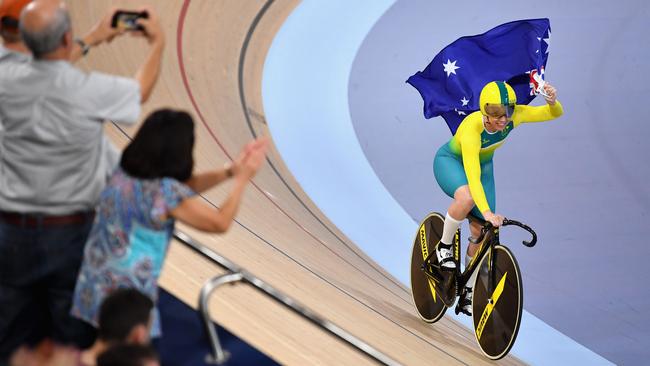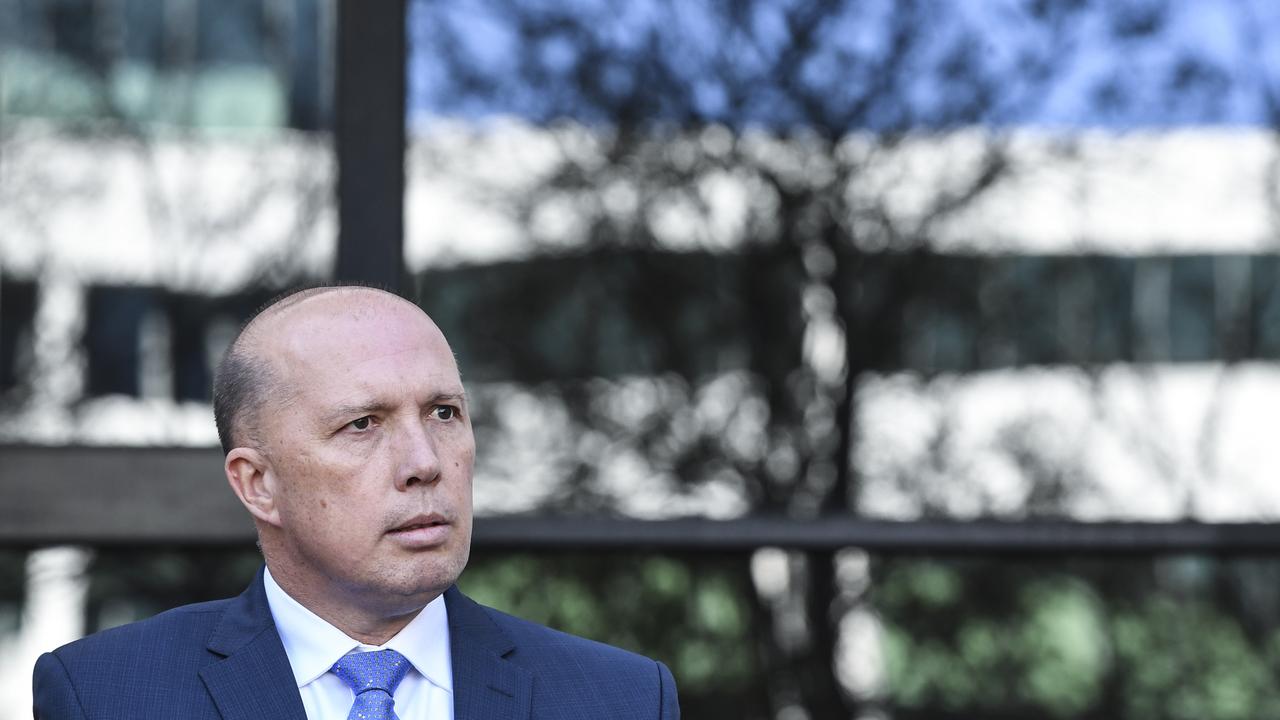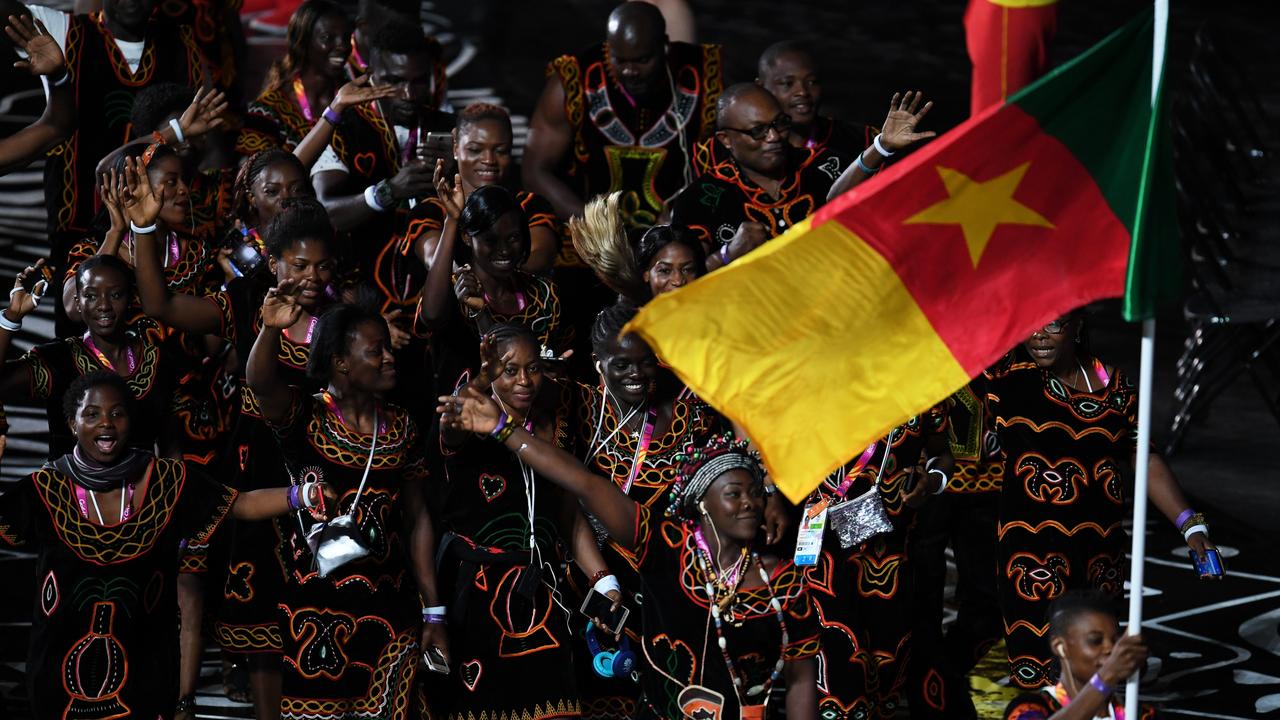Commonwealth Games: The long road back for Kaarle McCulloch
Why am I doing this? The answer to that deeply personal question is what gets these athletes out of bed in the morning.

Why am I doing this?
The answer to that deeply personal question is what gets these athletes out of bed in the morning. It’s what gets them on to the training track in the middle of winter. It’s what they use to trick their minds and bodies into slogging through a thousand hours of laborious practice sessions instead of joining their young-adult mates at the pub. It’s what keeps them up at night. It’s what excites them and fuels them and riddles them with nerves. They are laying themselves bare. It’s brave, but it leaves them vulnerable. The end of the self-examination is what brings them to tears at the finish line. Back in the dark days, they’ve all asked themselves the same thing. Why do it?
The measure of Kaarle McCulloch as a woman and athlete came in the way she sat in the grandstands at the Rio Olympics and roared her support for her Australian track cycling teammates straight after she had been ditched from the final selections. It was when she was in cheerleader mode in Brazil that the then 28-year-old had to make a decision. Quit or keep going?
She could make another push towards the Commonwealth Games. She could call it a day. To try again would take courage. She would need a sports psychologist to get her mind right after career-threatening injuries, wavering motivation and depression. She would need to get in the most sparkling physical shape of her life. She would need to wrestle individual medals off the seemingly untouchable Stephanie Morton. She would need to accept the fact it might all come to nothing and when the Games began, she might be back in the grandstand as a non-competing reserve.
She fought the good fight. This weekend she was on the track in Brisbane, a victory in itself. It was the time trial on Saturday night. Two laps versus the clock. One rider at a time. She watched Morton record a sizzling and perhaps unbeatable time of 33.583 sec. What McCulloch did next was breathtakingly bold. Her finish was great. Her start was better.
Look at the grimace on her face when she pushes off the line. Look at the strain in every muscle. Look at the sheer bloody determination to extract every last 10th of a second out of herself. She won by the skin of her clenched teeth — 36/1000s of a second. “My gosh,” she said. “I think I’m going to cry.”
She wasn’t alone there. Even Morton, her great mate, threatened to tear-up. Why had McCulloch tried again after Rio? Because when no one else did, she thought she just might have a ride like this in her.
She put her hand over her mouth at the finishing line, she turned white as a ghost, she trembled, she nearly fainted as she walked off the track. It’s not always about the sport for an athlete. It’s about the heart and the gut. This wasn’t all about the bike. It was the glorious end to a gruelling two-year self-examination McCulloch decided to do when she was on the scrapheap in Rio.
“Having to sit on the sidelines in Rio — really, that tore at my heartstrings,” she said. “Sitting in the crowd in Rio and I thought to myself, ‘I’ve got this burning desire in my stomach. I’m not going to retire yet. I’m only 30 years old. That’s not that old. I’ve dug in.”
McCulloch tried brain-training technology used by the US special forces and NBA star Steph Curry in her quest for the elusive mental strength that would shave milliseconds off her times. The invisible hours are underestimated. The years of hard yakka that precedes a 30-second performance. It was those milliseconds, 36 of them, that left her whooping it up inside the Anna Meares Velodrome after Meares herself had whispered her desire for a McCulloch victory. They’ve all seen her hills and valleys. Thirteen years into her career, McCulloch won her first major individual medal.
“I did some special forces training, which was just ridiculous,” she laughed. “They did things like put my head under water and held it there. All the training has paid off.”
There’s a bit to like about the Australian cycling team. The camaraderie appears to be more than tokenism. McCulloch’s triumph on Saturday evening was followed by Sam Welsford’s come-from-behind victory in the 60-lap scratch race that was the ultimate in a grandstand finish. Australia had three riders on the boards: Welsford, Cameron Meyer and Leigh Howard. The jobs of Meyer and Howard were to help Welsford win gold. No headlines for them. No medals. England’s Ethan Hayter led the pack by half a lap with 250m to go. Welsford launched his fierce final pursuit. He got closer and closer and closer and closer … and won with his desperate final lunge.
“I’m over the moon,” he said. “This race is such a lottery, 60 laps, and luckily enough I caught him on the last lap. My visor was falling off. I was mid-sprint so I didn’t want to adjust it. It fell off in the last couple of metres anyway. Cam Meyer and Leigh Howard — hats off to them. They were in every move and looked after me all race. I think Australia, the whole team, we’re just so tight-knit and I think it’s really showing in the results.”
Why could McCulloch have quit? “I did a warm-up and just came back off the track and burst into tears,” she said of the knee and back injuries that nearly ruined her in 2014. “I was sick of riding in pain. For five years I’d been getting on the bike and being in pain. I said to my coach at the time, ‘This is it, I can’t do this anymore’.”
Why could McCulloch have quit? Because trying again would cost her a mint. She spent her $30,000 of life savings on her rehabilitation. After three months of decision making, she started training again. Bravest thing she ever did.
Why was she doing it? Rio. Another two years later, she was shattered to be denied a ride in Brazil. She continued. Why do it? The Commonwealth Games. Yet another two years later, she pushed off the line and won by milliseconds. The audience was vast, but the moment was also deeply personal.
Why was she doing this? For a night that would obliterate every past disappointment. “I was sitting in the stands in Rio and even though I didn’t get to race, I was sitting there thinking, ‘I should be there. I want to be there,’” she said. “It just motivated me.”





To join the conversation, please log in. Don't have an account? Register
Join the conversation, you are commenting as Logout